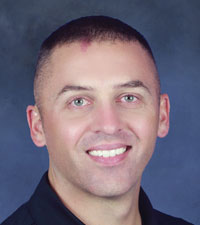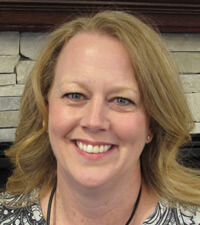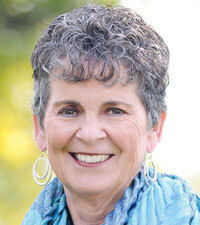Unplanned Life Changes in Omaha, NE – 2018
You may or may not be well-versed in the wisdom bestowed upon us by Greek philosopher Heraclitus, but he is best known for his doctrine of change being central to the universe. Through various translations, what you likely do recognize is the most popular paraphrased version, “The only thing that is constant is change.”
That’s life, folks. We’re all familiar.
Change can be positive, negative or neutral – and it can start out as one but end up shifting to another as time goes on. Sometimes change is intentional and as such, planned for in advance. You’re prepared for what’s ahead. Perhaps you’re excited, hopeful, or you begrudgingly know it’s what must be done and have made the decision to address whatever it is proactively. You may or may not be ready, but you’re prepared nonetheless.
Other times, something happens unexpectedly and changes in your life happen as a result. Although in this scenario there are going to be things out of your control, what you can control is how you react.
Is it really possible to plan for the unplanned changes in life? Absolutely. By familiarizing yourself with the resources that are available, especially those at the local level here in your community, you’ll be doing your future self a huge favor. Furthermore, taking certain precautionary actions will help immensely in the event of the relatively unexpected occurring.
You can choose to be empowered by getting things in place that will allow your future self to act in a way that you would regardless of how a situation comes about. This way, at the very least, you’ll be able to confidently approach the first step you’ll take moving forward when you’re facing change and uncertainty ahead.
This is especially true for changes that you can anticipate to some extent, such as those that come along with the aging process.
“As we all know, life can change very quickly and unexpectedly,” says Kyle Johnson with Care Consultants for the Aging. “In my line of work, lack of preparation is something I see often and it can present a number of problems for people depending on the circumstances.
As we all age, life just becomes more difficult. People who are more understanding and aware of their personal care changes are the ones who seem to do best when sudden changes occur.
With our services at Care Consultants for the Aging, we are set up to help seniors who have gone through life-changing events such as sudden loss of independence due to a medical incident, loss of a spouse or just the reality of life becoming too difficult to do alone.
I would advise any senior who lives alone to make sure they have plans in place for sudden life-changing events. The biggest one is having a person who comes to check in on them from time to time. It’s okay to ask for help. There are many professionals in the industry who have solutions to help keep seniors independent for as long as possible. For example, with the assistance of a private caregiver in the home, it helps a person retain the highest level of independence possible. Don’t resist the help when sudden changes do occur.
Please visit our website at OmahaHandbook.com to view our ElderCare Resource Handbook. This is a great tool available for free to help you find resources in your area.”
When a person is faced with making decisions that involve drastic changes to the lifestyle to which they are accustomed, it can ultimately feel like being forced to choose the best of the worst. Venturing into the unknown is scary, and the older a person gets, the more difficult it can be to adapt, especially as a result of being caught off-guard by something unexpected.
“For many of my clients, at the very beginning of our relationship, they are dealing with the realization that they are no longer able to care for themselves,” says Jim Laughlin with Home Nursing With Heart. “It’s tough, for some more so than for others. In many cases, at the same time, they are also coming to grips with the fact that there is little or no family member involvement to help them. Finding out you are truly alone in this world at a time when major changes are occurring is undoubtedly a traumatic experience. For these people, the support of care providers and access to resources that are there to help them is vital.
It’s also quite common for us to be brought into situations where the family has just realized that an elderly loved one needs immediate intervention. They may have just discovered the person’s living conditions have deteriorated far past where it had been the last time they had visited, or the extent of which dementia or a health condition has progressed over time. The senior may simply just not be able to keep up and need help staying on top of things or it could potentially be something more serious. The cause that needs to be addressed is likely diminished physical and/or mental capacity, and the severity along with the underlying issues will largely determine the course of action moving forward.
At Home Nursing With Heart, when we identify any of these types of situations, we send out our medical social worker to educate on any and all of the services available to them. We also work with companion care and placement services to help the patient navigate these situations to the best of their ability. Involving as many resources as possible is the only way we can help.
At the same time, the family may come to find out that their loved one’s finances are no longer able to cover basic needs, let alone necessary medical care, and assistance is desperately needed. We also commonly encounter clients who do not have a power of attorney (POA) designated, which presents certain challenges as well.
Establishing a POA allows the decision-making process to be much more timely and effective. If you haven’t done that, I strongly encourage it – and it’s not a bad idea to have it in place before you feel it’s needed for whatever reason. It’s also important to figure out what the financial picture looks like so you can make timely decisions on how long the money will last and what happens after that.
We’re always happy to educate on any number of related topics, which might include long-term care insurance options and what is covered or the progression of dementia and the changes to watch for as that happens.”
For those in their golden years, with respect to the most common scenarios that would result in unplanned changes that have already been mentioned, the outcome will vary depending on the individual and the circumstances. This might involve short-stay rehabilitation, extended rehabilitation, in-home care and possibly home modifications, or a move to a smaller home, to live with a family member or to be nearby your support system, or to an independent, assisted, or skilled care residence.
“We typically see patients after an injury, and that injury can potentially be life altering,” says Katie Van Boskirk with Brookestone Meadows Rehabilitation & Care Center. “Many of our patients receive therapy services, regain their independence and return to their prior level of function. However, some patients are not able to regain their independence and have to consider alternative living options. Moving from their own homes can be very challenging. As a social worker, I assist patients and families with navigating the healthcare continuum and provide education on various levels of care and community resources. It’s my hope that we’ll be able to plan for these changes before the end of their stay nears to help alleviate some of the stress for both the patients and their families.
As for other stressors, finances are the biggest hurdle we usually run up against. A lot of individuals never thought that they would live as long as they have and therefore haven’t planned their finances accordingly. Furthermore, this population didn’t plan on having to have to spend thousands of dollars monthly because of a life-changing event. Finding the funds to help support them can often be a challenge. We’re able to assist with educating our clients on Medicaid, Medicaid Waiver, Spousal Impoverishment, and VA benefits.
We have knowledge of many different companies that offer services to seniors. When discharging from a rehabilitation facility, don’t be afraid to ask questions. We can help you find the resources you need.”
She also notes, “In general, it’s always good to have a Plan B and to be open to change. Also, having paperwork in order such as a Living Will and Power of Attorney is beneficial. This is applicable to everyone, not just seniors. The aging process can be difficult in and of itself, so educating yourself on the options that are available is key.”
With an unexpected event such as an injury, illness, or death of a loved one that requires a senior to move, it can be a truly tough time. For that person, it can already feel like they are losing so much, so if there’s not been any previous downsizing to prepare it’s not exactly the best time to start getting rid of a bunch of stuff they’ve gathered over a lifetime. Instead, consider utilizing a storage facility for the time being so that it’s more of a gradual process and there’s not such a sense of urgency in making those decisions, which could exacerbate an already stressful situation.
This could also hold true for a number of other unexpected events that would in some instances require a move, such as military deployment, displacement due to an emergency situation, separation or divorce, and so on.
Knowing your treasured belongings are safe and secure at least offers a little peace of mind in times of uncertainty and change.
When responding to an unexpected event, it’s important for everyone involved to get on the same page, coordinating your efforts in dealing with whatever comes next. Since that is easier said than done, it is helpful to have an experienced professional to guide the process and help you make decisions together.
“No one is capable of predicting what happens in the immediate future and when a medical crisis hits, most often panic is the first response,” says Mary Ann Stallings with Bridge to Better Living. “Everyone in the family wants the best for their loved one, but they may all want a different ‘best.’ There may be multiple calls from well-intentioned people and even the communities become confused as to who belongs to whom. It is best to contact Bridge to Better Living and have a personal liaison to take the stress and confusion from the situation. We transition the loved one from Point A to Point B in whatever time frame is necessary. By applying our knowledge and resources, we are always thinking ahead and putting the puzzle pieces together.
Bridge to Better Living encourages being proactive and contacting us to look at possibilities before a crisis. Establishing a plan for the future with an expert helps ‘myth-bust’ views from potentially unreliable sources and aids in envisioning appropriate communities.
Bridge to Better Living is capable of handling many types of situations when a move is required due to a medical event. We have access to a number of resources and maintain current knowledge of availability, services and community contacts. Bridge to Better Living first assesses the client, their needs, wants, and lifestyle. After considering the possibilities, we reach out to appropriate communities. The family is always informed and it is not unusual to schedule a tour or placement in minimal time. Bridge to Better Living follows our clients through not only the research step but the move-in too. Should life changes necessitate another move after several years, we are already involved with the family and are able to quickly navigate the process.
Whatever the case may be, please know that Bridge to Better Living is here for you. If you are even beginning to ponder the ‘what ifs,’ give us a call. We look forward to having a conversation with you. Bridge to Better Living’s mission is Placement with Passion. It may take 5 years or 5 days, but regardless, we want our clients to be empowered to make informed decisions when choosing a Retirement Living option, whether it is Independent, Assisted, Memory Assisted or Long-Term Care. Our services are completely free to the client. We care.”
In closing, she too emphasizes, “Plan ahead. Don’t hesitate to take the first step. Use a reliable service with a good reputation, one such as Bridge to Better Living.”
Ultimately, we live in a time where planning for our senior years is best done well in advance – it’s truly never too early. As we approach and enter our senior years, there will no doubt be game-changers, and there will be an unexpected curveball or two thrown into the rotation. You might not have all the answers, but you can find them, and those who have a plan are in a much better position than those who don’t.
As yet another example of an unplanned life event that brings change, death, while something that “comes to us all,” can come at any time and in any manner. Our time in this world is limited, so we must be as intentional as possible in making the most of it. Loss, and how one person’s life will change as a result of being touched by another, is all a part of that precious gift of life.
Of course, we all know that death is certain at some point – but even with that being the case, many are not very well prepared for that eventuality.
One of the best ways to address the “unplanned change” of the eventuality of death is to plan for it. That may seem like a bit of an oxymoron, but just as you plan for your education, your wedding, your family’s financial security, and retirement, you should also plan for your end of life living, and for your eventual death. Have your end of life health care wishes in place – in writing and reviewed by your attorney. As previously mentioned, name a Power of Attorney for healthcare and for finances, have a will and estate plan in place, but also plan for (and preferably fund) your funeral. All of these things save your loved ones time, money, and emotional strain during the first few days following your death.
Most people in their 40s and 50s are beginning to think about retirement – and many in their 30s are even starting to plan ahead. One big piece of those plans should be to have your funeral arrangements in place, and a plan for prepaying the expenses.
Oftentimes, families are confronted with the question of how their loved one wanted to be remembered, particularly when death is unexpected. One thing that can help address some of the loss and confusion is to plan ahead.
While many people think of a funeral home being available to assist only at the time of death, in reality, planning ahead saves everyone a lot of time, energy and resources.
“Death is inevitable, but is a topic that is often difficult to talk about before it happens,” says Greg Nabity with Nebraska Cremation. “It is important to let your close family members know what your wishes are regarding how you would like your death to be handled. As previously mentioned, this can include advance directives for your healthcare during a final illness, and also the location of documents, whether you wish to be cremated or buried, and what type of remembrance services you want to be held.
At Nebraska Cremation, we are uniquely qualified to assist you with making your wishes known. Or, we are able to guide you through the experience of an unexpected death, providing wise counsel, comfort, and guidance that will help you to best handle the situation.
When navigating any of life’s unplanned changes, always seek the help of professionals who are experienced and equipped to provide information, guidance, and services that will make things much easier.”
For those facing a health condition that is terminal, hospice care can be incredibly beneficial as well. Due to the unpredictable nature of terminal illness, it is something that can be expediently set up, with a very small window of time necessary to get a support system in place. That being the case, as a result of a devastating unplanned diagnosis, it’s the best possible plan to have moving forward.
All throughout life, a person will face life-changing events, some expected and others unexpected. Later in life especially, there are distinct changes in both categories. Hope for the best, plan for the worst, and be mindful of the professionals who can help you, high points and low points alike. There’s little as valuable as having a strong support network to call on when needed, especially in dealing with life’s unplanned changes.






